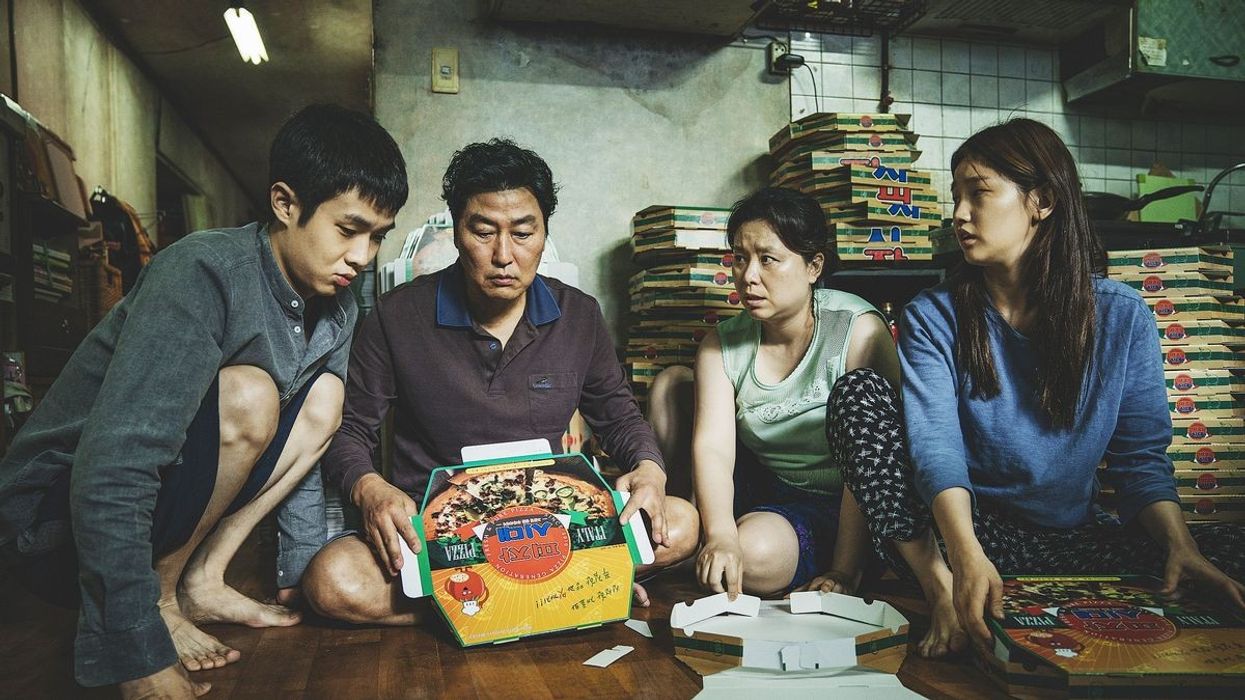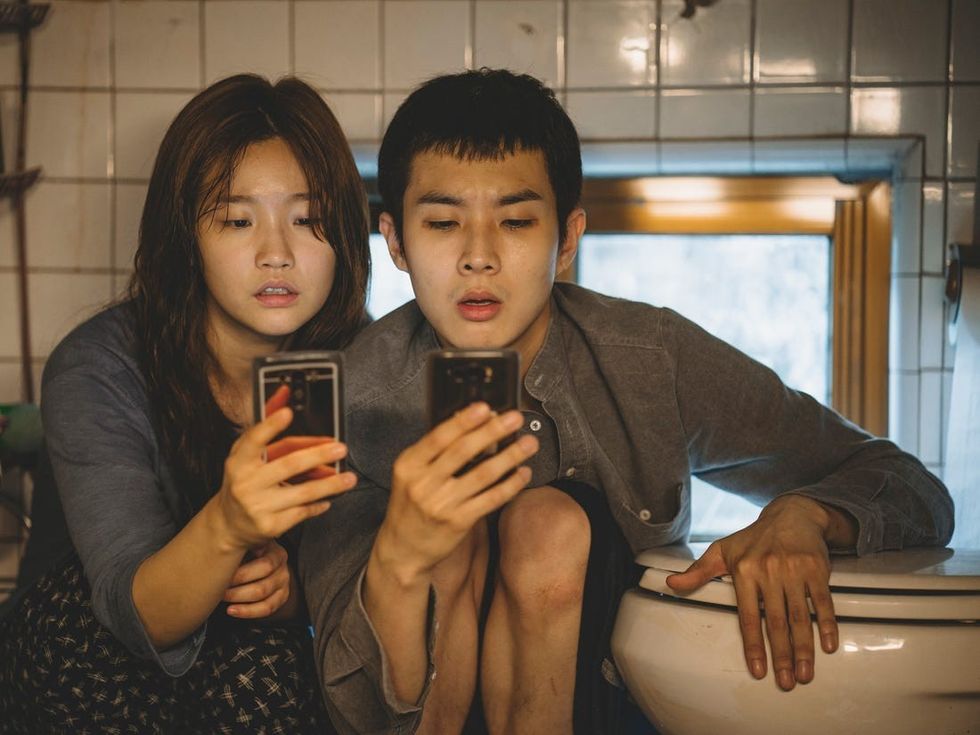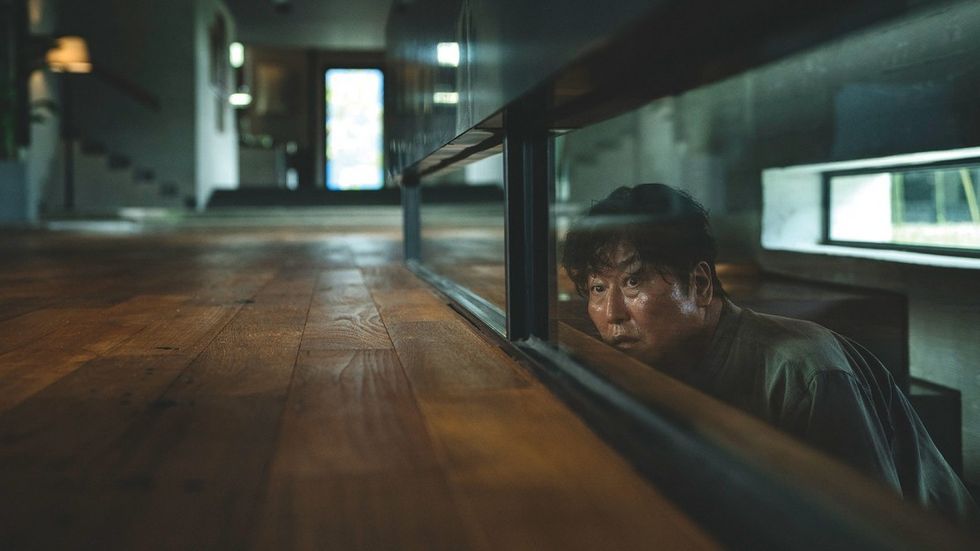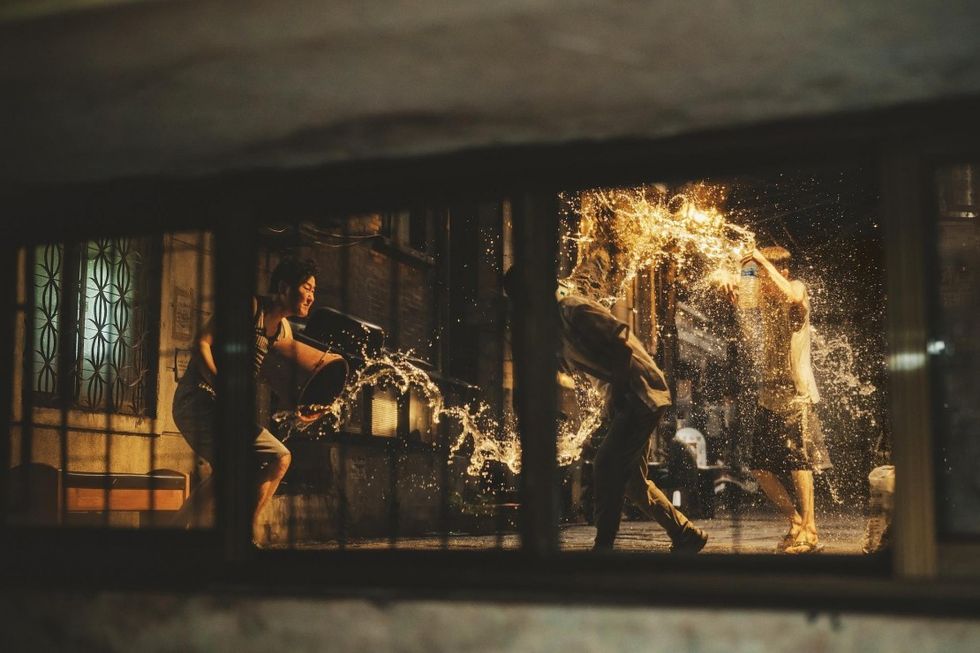'Parasite' Editor Jinmo Yang Teaches Us How to Edit Without Coverage
Parasite is connecting with audiences everywhere. Editor Jinmo Yang explains how he and Bong Joon-ho cut together this massive hit.

When you ask someone to describe Bong Joon-ho's Parasite, chances are they'll trail off a bit and end up saying, "You just have to see it."
The genre-bending film defies even the most diligent attempts to classify it. It's a thriller. It's a dark comedy (or is it a tragicomedy?). It's satire. It's an arthouse autopsy of class warfare that transmogrifies into a cunning revenge story. It's an upstairs-downstairs story turned upside-down.
However you spin it, Parasite is a massive hit. The South Korean film had the highest-grossing opening weekend of all time for a foreign-language film in the U.S. and has earned more than $100 million at the international box office. At a time when much of the world is reckoning with economic inequality and social mobility, Parasite has struck a nerve. And Bong is in full command of the form here—mesmerizing, meticulous compositions and a wry sense of humor are just some of the tools he wields in the service of annihilating our expectations.
In a movie filled with ploys, the most impressive ploy of all is Parasite's narrative escalation of tension and dread. Editor Jinmo Yang, who has worked with Bong on previous films such as Snowpiercer and Okja, takes us inside the Parasite editing suite to discuss how he and Bong finessed the film's razor-sharp pacing and more.
Editor's Note: The interview below includes spoilers for Parasite.
No Film School: What were your first reactions to reading the script?
Jinmo Yang: I was very happy that Bong was returning to Korean cinema again with Parasite [after Okja and Snowpiercer]. I obviously felt similarities to his previous works, but I really did think that he evolved as a storyteller. I was very impressed by how all these different genre elements were mixed into the story. I thought it was a very original script.
"Director Bong is actually a very skilled editor. He starts editing in his brain once he starts writing a script."
NFS: What most excited you narratively about the prospect of editing the film?
Jinmo: The story is essentially about three families and the situations that unfold when they meet one another. And as the story progresses, their relationships become very intertwined. You see all these different twists popping up and the story seems to reach a certain resolution, and then it totally flips around. My focus was on how these different families can organically be intertwined and sort of roll as one unit. [I wanted to] effectively express that without it being excessive.
NFS: When you first met with Bong to discuss the genre elements and your approach to editing, what kinds of conversations did you have?
Jinmo: When director Bong and I first met for Parasite, he never said how this film is a mixture of all these dramas and how difficult it would be to edit. Our conversation was more general. He asked me a lot of questions about the script. He asked me what parts of the character development were missing, and which characters felt the most appealing. Overall, we really talked about the characters.

NFS: The film operates with a killer escalating tension. How did you finesse the pacing?
Jinmo: In terms of the structure and how the narrative and tension progresses, that's pretty much already set in the screenwriting stage and the storyboarding process. Director Bong is actually a very skilled editor. I think he starts editing in his brain once he starts writing a script. So in the storyboard process, he already has the scenes pretty determined before he comes to the editing room. For example, in his storyboard, sometimes he'll make it very clear which scenes should be cross-cut with one another.
So, in the editing room, it's about how to maximize the tension that's already achieved in the previous processes. That involves how long a singular shot is, or how to emphasize the expression of a particular character. And these minute details are all determined in the editing room.
"Director Bong doesn’t shoot coverage. So if something doesn't work in the editing room, we stitch different takes together as if it’s one shot."
Usually, when I'm editing other films, I'm really focused on what to omit and the shots to take out, but for Parasite, I was really focused on finding the better shot or the better timing to cut. That's where I poured in a lot of my effort so that I could maintain a high level of tension throughout the film.
NFS: How does Bong's storyboarding process affect your workflow, exactly, once you're in the editing room?
Jinmo: When I get into the editing room, I look at the storyboard in the beginning. But as I progress into my editing process, I stop looking at the storyboard because I end up being trapped in what's on the pages. As an editor, my job is to make the best choices out of the situation that's already determined. So I tried not to look at the storyboard in the end so that I could add in my own personal touch into the film.
When I look at the shots that director Bong filmed, it's almost all exactly the same as what he storyboarded. But in cinema, as in life, not all plans work out. So sometimes the shots won't really work as well as he had planned. Editing those sequences is the most fascinating part for me.

NFS: Would you mind taking me through one of those sequences where something didn't work out as planned?
Jinmo: In terms of individual shots, there would be too many to mention. So I'll mention a particular sequence. In the flooding sequence where you see Jessica on top of the toilet that's spewing sewage water... that whole scene is cross-cut with the scene where you have the original housekeeper throwing up on the toilet, talking to her husband. On set, when they actually shot those two sequences, they didn't plan for them to be cross-cut originally. We're supposed to see the flood sequence first and then the original housekeeper in the basement. But when we were editing, director Bong asked me what we could do to make this feel more organic. That's when I started cross-cutting. So in the film, you have the original housekeeper throwing up in the toilet and then it cuts to the scene with Jessica on top of the toilet, as if it's spewing out the throw up from the original housekeeper in the basement of Jessica's family.
"I knew that Korean audiences would react well to this film, but I never imagined that it would garner the attention it has from the international community."
NFS: Bong doesn't seem to be a huge fan of traditional coverage. For example, rather than covering a conversation by shot-reverse-shot, he pans between the characters talking. It is quite a dizzying effect. How do you deal with this as an editor?
Jinmo: On Parasite, there was no coverage. Director Bong doesn’t even shoot masters. So if one pan doesn't work in the editing room, we stitch different takes together as if it’s one shot. We do this to perfect the timing and rhythm.

NFS: Let's talk about the party scene, the climax of the film. I'm sure there were some interesting choices that you made there.
Jinmo: It was pretty much shot according to the storyboard, but there was one exception.
Throughout this film, an important theme is crossing lines. In the party scene, in the storyboard and the original script, you have Ki-taek in his Native-American headdress. He's with Mr. Park and they're having this conversation just before the chaos unfolds. In the script and in the storyboard, you have a moment where Ki-taek smells Mr. Park. That's a really pivotal moment where he really crosses the line.
"Bong talked a lot about how we could have the audience understand this moment when Ki-taek completely changes."
While we were editing, we omitted that scene. This is because director Bong talked a lot about how we could have the audience understand this moment when Ki-taek completely changes. Throughout the film and especially at the end, you see his rage piling up, and it all explodes in the party scene. How can we get the audience to sympathize and understand this big turning point in this character?
If we had followed the original script and the storyboard, where Ki-taek smells Mr. Park, we felt that the emotions sort of evaporated there. We would lose the emotions momentarily. So instead, we made the decision to leave Ki-taek and Mr. Parks' conversation with very heightened tension. They end that conversation with just their eyes. They don't really say anything. And then they go through the entire party scene, and the chaos happens.

NFS: The film has been wildly successful in the U.S. Are you surprised by its popularity at all?
Jinmo: I was very surprised. And even now, I'm constantly being surprised. To be honest, I knew that Korean audiences would react well to this film, but I never imagined that it would garner the attention it has from the international community.
Now, in hindsight, it all makes so much sense. This is a story that really applies to any country in the world. But when we were making this film, it never occurred to me that this would do so well. Parasite is a story with a lot of local very Korean details, but I think it presents emotions that anyone can sympathize with. Whether you're the Kim family or you're the Park family, there's something to sympathize with. As you're watching this film, you don't really take sides with one particular character. It's difficult to say who the victim is or who the perpetrator is. Everyone is a victim and perpetrator at the same time. Considering all the things that we're going through in society these days, I think there's a lot for people to sympathize with and agree with.
Also, there's a lot of entertainment that comes from director Bong's sense of humor in detail. I think people really respond to that.











